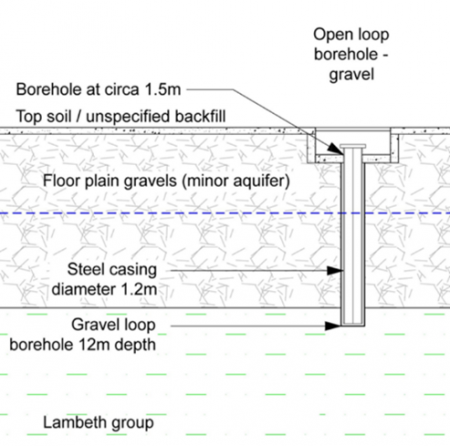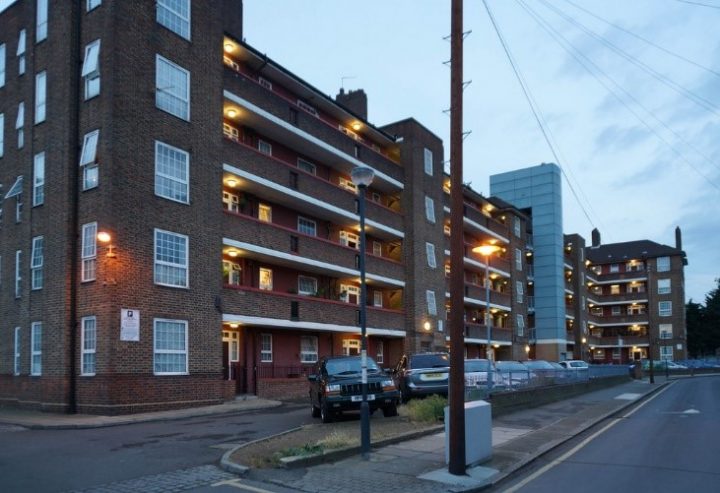Sustainable Energy have completed a project for the Royal Borough of Greenwich (RBG) Council – a solution comprising an aquifer source heat pump, smart controls and flat heating design. This project is supported by Sharing Cities, an EU Horizon 2020 Smart Cities and Communities Programme, bringing together 30 partner organisations in 6 countries, and seeking to apply a ‘digital first’ approach to the areas of energy and transport in the three lead cities of London, Lisbon and Milan.
Scope:
The project addressed the space heating and domestic hot water requirements for three RBG social housing blocks. Heat source options assessed included: a river source heat pump, a gravel aquifer source heat pump, a chalk aquifer source heat pump, and a proposed combined heat and power (CHP) plant.
Services:
We were commissioned to:
- Establish the business-as-usual case for energy use, energy costs, consumer costs, and repair and maintenance costs
- Establish energy and CO2e balances based on space heating and domestic hot water demand, and model heat supply from heat pumps and proposed CHP plant
- Provide an optimised system design, up to and including the interface with the building heat system, accounting for secondary side operating requirements
- Dimension secondary side heating installations such as radiators, risers and laterals
- Design and size the heat network, water treatment pumping etc.
- Establish implementation feasibility of each option – including production of preliminary plant and equipment layout drawings, to the extent necessary to reliably inform the option choice
- Develop a techno-economic model accounting for the apartment heat distribution system options in order to identify the preferred option
- Establish smart control system principles and produce a signal interface schedule (based on smart control and modelled predictive control)
- Prepare a preliminary procurement specification including principles of control and operation based on predictive control strategy
- Develop an outline implementation programme, including an indicative timeline
- Work with project partners including Imperial College, Siemens and Danfoss
- Produce stage 3 RIBA design
- Provide specification to procure the main contractor
Solution:
The preferred option is a heat pump utilising the chalk aquifer. The energy centre control strategy will prioritise and optimise the operation of the heat pumps and thermal stores. A sustainable energy management system (SEMS) will collect data such as weather forecasts, carbon intensity in the electricity grid, local air pollution forecasts, and energy price data forecasts. The SEMs will interact with a local control system to maximise efficiency and CO2 reduction, reduce operating costs, and consider local air quality.
The construction phase of the project is currently underway, and we continue to assist the Borough with further technical advice as client engineer for the scheme.




